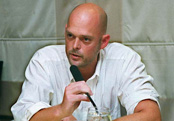
Menu
-
Solutions
-
Our Solutions
-
AcademicSurface potential plagiarism prior to publication with iThenticate’s expansive content database.
-
AdmissionsScreen personal essays for potential plagiarism and help ensure the highest level of integrity even before matriculation.
-
GovernmentEnsure the originality of public-facing content, from legal documents to grant applications, and reporting.
-
MedicalPrevent invalid findings dissemination, grant misconduct, and improper medical practices.
-
PublishingProtect your journal’s reputation by publishing only the highest quality articles.
-
-
Resources
-
Our Resources
-
FAQFind the answers to the commonly asked questions about how iThenticate works.
-
Content DatabaseComprehensive coverage you can trust across the internet, scholarly articles, and industry papers.
-
GuidanceSearch our comprehensive site for the launch, integration and usage information.
-
-
Pricing
-
Login
-
Buy Credits

 When looking at plagiarism in politics, it’s easy to be floored by the spate of recent scandals,
When looking at plagiarism in politics, it’s easy to be floored by the spate of recent scandals, 





